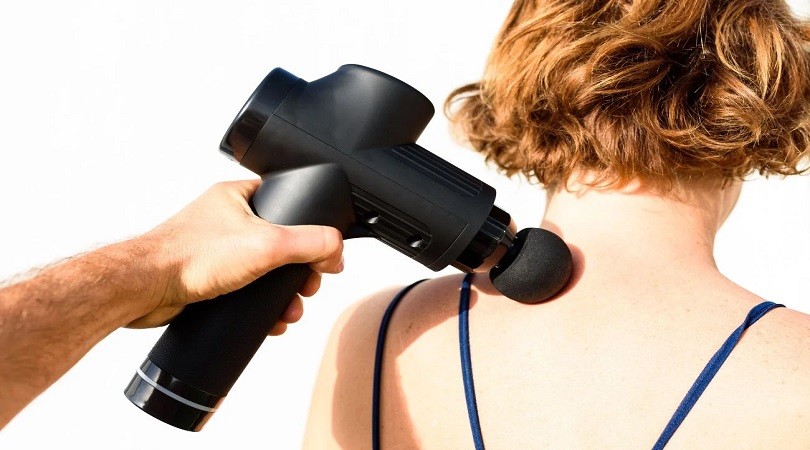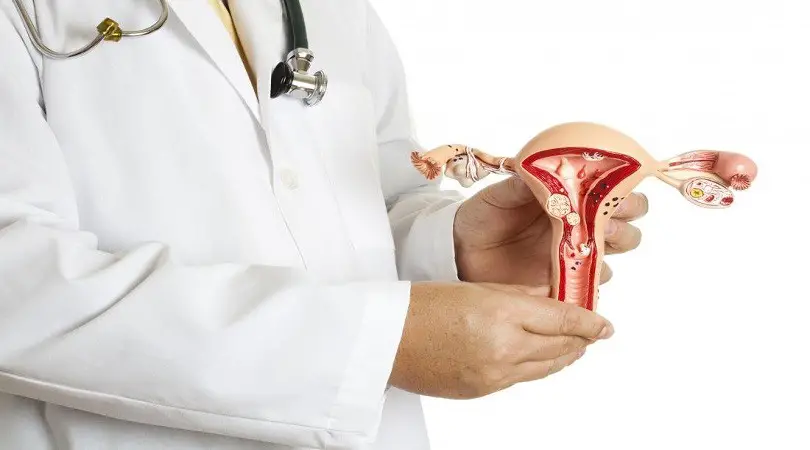Last Updated on January 6, 2025
Yes, you can eat fish eggs while pregnant, but it is important to do so in moderation. Fish eggs, also known as roe, are a good source of essential nutrients like omega-3 fatty acids, protein, and vitamins.
However, fish eggs may also contain high levels of mercury, which can be harmful to the developing fetus. Therefore, it is recommended to limit consumption and choose fish eggs from low-mercury fish species like salmon, trout, or whitefish. It’s always best to consult with your healthcare provider for personalized advice regarding your dietary choices during pregnancy to ensure the safety of both you and your baby.
The Importance Of A Healthy Diet During Pregnancy
Nutrient Requirements For Pregnant Women
During pregnancy, it is essential to ensure that you are providing your body with the right nutrients to support the healthy development of your baby. Here are some key nutrients that pregnant women need:
- Folic acid: This nutrient is crucial for the development of your baby’s neural tube. It is recommended to consume at least 600 micrograms of folic acid daily during pregnancy.
- Iron: Iron helps in the production of red blood cells and prevents iron deficiency anemia. Aim for around 27 milligrams of iron per day during pregnancy.
- Calcium: Calcium is important for the development of your baby’s bones and teeth. Make sure to consume around 1,000 milligrams of calcium daily.
- Iodine: Iodine plays a vital role in the proper functioning of your thyroid gland and the development of your baby’s brain. Aim for 220 micrograms of iodine per day.
- Omega-3 fatty acids: These healthy fats help in the development of your baby’s brain and eyes. Include sources like fish, walnuts, and chia seeds in your diet.
Benefits Of Eating A Nutritious Diet During Pregnancy
Maintaining a healthy and nutritious diet during pregnancy comes with numerous benefits for both you and your baby. Here are some advantages:
- Supports the growth and development of your baby: The nutrients you consume directly impact your baby’s growth and development. A well-balanced diet ensures that your baby receives the necessary nutrients for optimal growth.
- Reduces the risk of birth defects: Certain nutrients like folic acid help in preventing neural tube defects in babies.
- Promotes a healthy pregnancy weight: Consuming a nutritious diet can help you maintain a healthy weight during pregnancy, reducing the risk of complications such as gestational diabetes and high blood pressure.
- Boosts energy levels: A nutritious diet provides the energy your body needs to cope with the demands of pregnancy.
- Improves overall well-being: Eating healthily during pregnancy can contribute to better mood, improved digestion, and overall well-being throughout the nine months.
Remember, consult with your healthcare provider to determine your specific nutritional needs during pregnancy. They can guide you on maintaining a healthy diet that suits your individual requirements.
Understanding Fish Eggs And Their Nutritional Value
Fish eggs, also known as roe, have long been enjoyed as a delicacy in many cuisines around the world. Not only are they a flavorful addition to various dishes, but they also offer a range of nutritional benefits. If you’re pregnant, you may be wondering whether or not it’s safe to consume fish eggs.
In this section, we will delve into the topic, examining what fish eggs are, their nutritional composition, and the potential health benefits they offer.
What Are Fish Eggs?
Fish eggs, or roe, are the mature eggs found within female fish. These eggs can vary in size, color, and texture depending on the species of fish they come from. Some common varieties include salmon roe, trout roe, and caviar.
Fish eggs are often used in traditional dishes, such as sushi, or enjoyed as a standalone appetizer.
Nutritional Composition Of Fish Eggs
Fish eggs are a rich source of various nutrients that can contribute to a balanced diet. Here are some key components found in fish eggs:
- Protein: Fish eggs are packed with high-quality protein, which is essential for the growth and repair of tissues during pregnancy.
- Omega-3 fatty acids: These healthy fats are known for their role in promoting brain development and reducing the risk of certain conditions. Fish eggs are particularly abundant in omega-3 fatty acids, including epa and dha.
- Vitamins and minerals: Fish eggs contain a range of vitamins, including vitamin d, vitamin b12, and vitamin e. they also provide essential minerals like iodine, selenium, and phosphorus.
Health Benefits Of Fish Eggs
Consuming fish eggs while pregnant can offer several potential health benefits. Here are some reasons why you may consider incorporating fish eggs into your diet:
- Nutrient powerhouse: Fish eggs serve as a concentrated source of essential nutrients, including omega-3 fatty acids, which are crucial for fetal brain development.
- Protein-packed: During pregnancy, adequate protein intake is vital for the growth and development of the baby. Fish eggs provide a significant amount of high-quality protein.
- Omega-3 fatty acids: The omega-3 fatty acids found in fish eggs have been linked to a reduced risk of preterm birth, improved cognitive function, and a lower likelihood of postpartum depression.
- Rich in vitamins and minerals: Fish eggs contain various vitamins and minerals that are necessary for a healthy pregnancy, such as vitamin d, which aids in the absorption of calcium and supports bone health.
Fish eggs offer a range of nutritional benefits and can be a safe and enjoyable addition to your diet during pregnancy. However, it’s crucial to ensure that the fish eggs you consume are fresh, properly stored, and sourced from reliable sources.
As always, it’s essential to consult with your healthcare provider before making any significant dietary changes during pregnancy.
Safety Considerations For Consuming Fish Eggs During Pregnancy
Fish eggs, also known as roe, can be a delicious and nutritious addition to your diet. However, when you’re pregnant, it’s important to consider the safety aspects of consuming fish eggs. Here, we’ll explore the potential risks, guidelines and recommendations, as well as safe ways to consume fish eggs during pregnancy.
Potential Risks Of Consuming Fish Eggs While Pregnant:
- Mercury contamination: Some fish species, such as certain types of tuna and swordfish, can contain high levels of mercury. When consumed during pregnancy, mercury can harm the developing nervous system of the fetus.
- Foodborne illnesses: Fish eggs are susceptible to contamination by bacteria, viruses, and parasites. Consuming contaminated fish eggs can lead to food poisoning, which can be particularly harmful for pregnant women and their unborn babies.
- Allergic reactions: Like other seafood, fish eggs have the potential to cause allergic reactions. If you have a known seafood allergy, it’s best to avoid consuming fish eggs during pregnancy to prevent any adverse reactions.
Guidelines And Recommendations For Eating Fish Eggs During Pregnancy:
- Consult your healthcare provider: Before making any dietary changes or consuming fish eggs while pregnant, it’s crucial to consult your healthcare provider. They can provide personalized recommendations based on your specific needs and medical history.
- Choose low-mercury fish eggs: Opt for fish eggs from low-mercury fish species, such as salmon, trout, or whitefish. These options are generally considered safe for consumption during pregnancy.
- Ensure proper storage and freshness: Fish eggs should be properly stored and consumed when fresh to minimize the risk of foodborne illnesses. Check the packaging for expiration dates and follow storage instructions to maintain quality and safety.
- Cook fish eggs thoroughly: To reduce the risk of foodborne illnesses, it’s advisable to cook fish eggs thoroughly before consuming. This can help kill any potential bacteria or parasites present in the eggs.
Safe Ways To Consume Fish Eggs During Pregnancy:
- Prepared dishes: Enjoy fish egg dishes that have been properly cooked, such as sushi rolls or cooked fish egg omelets. These preparations provide a safe way to consume fish eggs while pregnant.
- Caviar substitutes: If you’re concerned about the safety of consuming fish eggs during pregnancy, you can explore alternatives like seaweed caviar, which is made from plant-based ingredients and does not pose the same risks.
- High-quality sources: When purchasing fish eggs, choose reputable suppliers known for their high-quality and safe products. This can help ensure that the fish eggs you consume are free from contaminants and of good nutritional value.
Remember, the safety of consuming fish eggs during pregnancy varies based on individual circumstances, such as your overall health and any specific dietary restrictions or allergies. It’s always best to consult with your healthcare provider to make an informed decision about consuming fish eggs while pregnant.
Frequently Asked Questions Of Can You Eat Fish Eggs While Pregnant?
Can You Eat Fish Eggs While Pregnant?
Yes, pregnant women can eat fish eggs as they are a good source of omega-3 fatty acids and high-quality protein.
Are Fish Eggs Safe To Consume During Pregnancy?
Absolutely! Fish eggs are safe to eat during pregnancy as long as they are properly cooked and sourced from reputable sources.
What Are The Benefits Of Eating Fish Eggs During Pregnancy?
Eating fish eggs during pregnancy provides essential nutrients like vitamins, minerals, and omega-3 fatty acids which promote fetal brain development and overall health.
Which Types Of Fish Eggs Are Safe To Eat When Pregnant?
Caviar, salmon roe, and trout roe are considered safe options for pregnant women to consume due to their low mercury levels and high nutritional value.
Conclusion
To sum up, while fish eggs, also known as caviar, are considered a delicacy and are often enjoyed as a luxury food item, pregnant women need to exercise caution when consuming them. Raw or undercooked caviar can pose a risk of foodborne illnesses, especially for pregnant women whose immune systems are more susceptible.
It is recommended that pregnant women avoid consuming raw or undercooked fish eggs and opt for properly cooked fish to ensure safety. However, pasteurized or cooked caviar can be a safe and nutritious choice, as it is a rich source of omega-3 fatty acids and various essential nutrients.
As always, it is important to consult with a healthcare professional before making any dietary choices during pregnancy. By following these guidelines, pregnant women can make informed decisions about consuming fish eggs while ensuring the health and well-being of both themselves and their growing baby.











